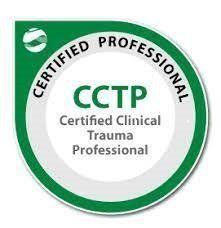RACING THOUGHTS AND HEART PALPITATIONS: IS DAILY ANXIETY KEEPING YOU FROM FUNCTIONING FREELY?
If you’re like most people who deal with daily anxiety, you’ve probably felt it all the way from your head down to your toes.
While your mind could be going in all different directions, you may also experience an unusual awareness of your heartbeat—all at the same time.
It’s not uncommon for daily anxiety to cause loss of appetite, decrease interest in sex, or even bring on a headache or other random muscle tension. Of course, the stress you face from time to time can also cause these symptoms.
The difference is that one usually lingers day after day while the other doesn’t.
Let’s take a look at why this happens and how anxiety can keep you from functioning freely in your own life.
Understanding Your Nervous System
In uncovering the mysteries of what anxiety does to you, it’s important to understand how your body works. Although your body and mind typically work together in harmony, daily anxiety can cause an imbalance.
Two of the three parts of your autonomic nervous system are your parasympathetic nervous system and your sympathetic nervous system. The parasympathetic nervous system is responsible for bodily functions during a state of rest like digestion, sexual arousal, and sleep. Your sympathetic nervous system is responsible for the “fight or flight” response.
Remember that anxiety is a normal part of life. For instance, when you are faced with a life-threatening situation like an unexpected car accident or being attacked by a wild animal, your nervous system reacts appropriately. The stressful situation activates your sympathetic nervous system, which throws your body into overdrive.
Your Nervous System and Daily Anxiety
Your body does a fantastic job of responding to life-threatening situations. The one catch is that it doesn’t know the difference between what is a tangible threat and what is only a perceived threat.
What this means is that your autonomic nervous system will respond the same to a growling bear as it will to an approaching deadline at work. Your own mind is the variable that determines how much of a threat a situation or even a thought becomes.
As you can imagine, the more stressed you are, the more your body tries to “save” you. Should you consistently remain in this state of overdrive, your body begins to malfunction under the constant strain.
Symptoms of Daily Anxiety
The symptoms your body might experience in an anxiety-induced state undoubtedly run the gamut.
You may already be aware that a racing heart is one of the most common. In fact, you may be especially and unusually aware of your own heartbeat—almost like your heart is a bass drum about to beat out of your chest. Feeling the pulse of your heart throughout your body in an odd way is also not unheard of.
Another frequent symptom caused by daily anxiety is the inability to calm your thoughts. It might seem like one negative thought leads to another, then to another. If you were to draw your thought trail on paper, it would look like an inescapable maze.
Along with the hard-to-control thoughts and the intense heartbeat, you might be experiencing digestive issues. Frequent upset stomach, diarrhea, heartburn, and vomiting could all be caused by daily anxiety.
In addition to your belly, your muscles might also be taking a hit. It’s fairly common for daily anxiety to produce unexplained aches and pains, muscle tension, and even painful cramping.
Your skin is one of the largest organs of the body. It often reacts to anxiety by drying out, breaking out, or healing more slowly.
Daily Anxiety can be Debilitating
While many of these symptoms mirror true physical illnesses, it’s important to view these symptoms with the understanding of how closely your body and mind work together. Clearly, coping with the symptoms of anxiety can be debilitating your own life.
Talking to a professional counselor can help you feel more confident about understanding the cause of your symptoms. If you’d like to discuss the things that are holding you back from enjoying your life, please contact me.
I’d be happy to talk in detail with you about ways to manage daily anxiety and help you cope with the constant stress.












